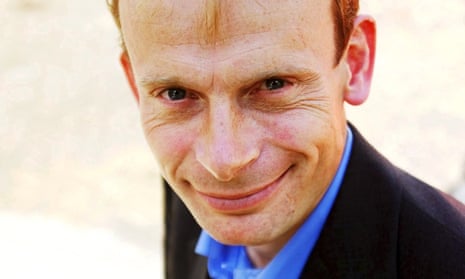What happened to the Independent this week is a footnote in a huge story – the wave of creative destruction overturning all traditional media – and a very important local political and cultural story.
The big story is well understood. Digital is much cheaper than analogue, or Gutenberg technology. The cumbersome is collapsing, outpaced by the nimble. That allows new voices into an old debate-cartel. But it’s not all genteel and attractive.
A lot of the capital cost is actually passed to the consumer. Under the old model, large industrial corporations used capital-heavy technology to make and then distribute information to individuals. In the new model we – you and me – purchase the computers, Wi-Fi accounts, apps, mobile phones and sometimes subscriptions, which allow corporations to pass the information to us more cheaply. For media companies, it’s a great gig. If you are poor, don’t have the connections or the gear or the bank accounts, perhaps less so.
BBC3 is now going online. Everywhere, newspapers are toppling. The Independent’s move is only a first. The Guardian has invested hugely in online and one day will have to contemplate the price of the remaining flattened-forest model; the Times and the Telegraph are both having a torrid time, and most of the tabloids are struggling horribly. The Daily Mail stands out – partly because of the huge success of its online publication, uncomfortably different from the printed version.

So, up to a point, this is a modest example of a much wider disruption. Just as new technologies are churning the advertising, music and movie businesses, and soon the car industry, too, they are causing cheerful havoc in news. It’s bad for those directly involved – but does it really matter? In the end, whether you get the material in an RSS feed, through a Twitter link, or on a piece of yellowing, coffee-stained newsprint … What’s the difference?
This takes us to the smaller story, of the Independent itself. Because it isn’t an example, or a footnote: it was and is a unique culture which, albeit in a small way, has been part of British life for much of my adulthood.
In the roll call of its editors, I was the most radical and probably the least distinguished. It’s very first front page carries my byline as a young and desperately keen political reporter. For years, I wrote three political columns every week there. I have read almost every edition since it was published and in recent years find myself turning to it more and more: I think its current editor, Amol Rajan, has been utterly superb.
It occupies a unique place in the British political spectrum. Other than the Guardian, it has been the most liberal national newspaper voice but, unlike the Guardian, it was always unequivocally pro-free market. Politically, it seemed to fit the less extreme 90s than it does the more angry and polarised 2010s.
At least for a time, it had a remarkably open journalistic culture. I think the most exciting weeks I have spent as a journalist were in the very early days of the Independent: we had open, argumentative and serious debates about issues such as our position on the Israel-Palestine war; we fought the closed parliamentary lobby system, and everyone hated us. It felt like journalism had suddenly become a democracy.
It hadn’t, of course. The pro-free-market newspaper soon fell victim to brutal market forces. During my time as editor, we were almost put out of business by News International’s predatory pricing. Later on, the brilliant cut-price i probably convinced too many readers that it was the real thing. Oops.
But the old question – what, really, is a newspaper? – remains key. If the answer is simply a means of transmitting information, titles are merely nostalgia. No, the proper answer is that a decent newspaper is a platoon of similarly minded, but not identically minded, people who argue, debate and together fashion a view of the world which is distinctive. A newspaper, properly understood, is the space between what editors and senior correspondents think, and how that space is challenged by reporters bringing in unexpected information; and the static energy all that produces.
There has never been a successful media outfit, from Newsnight to the London Review of Books, Private Eye or the Observer’s review section, which didn’t have at its heart a vigorous daily conversation between people who only quite liked one another. Each of these small cultural colonies, using the replication of traditional media, then affected the national conversation.
The Independent, in this company, has played an honourable and valuable role. It hasn’t been like, or the same as, anything else. In recent years, I have found myself turning to it more than ever. I need Patrick Cockburn and Robert Fisk and Kim Sengupta to try to understand the Middle East. There is a score of other correspondents I could mention.
Yes, it remains online. Journalistic communities exist there, too. I find the same energy in Bella Caledonia (on the Scottish left) and CapX (on the British right) that I find anywhere in print. The danger of going global/online, however, is that you lose your roots in a real community of real people; that you become disconnected.
People who say “there are enough newspapers”, are like people who say there are enough public parks or libraries, or piano concertos: always and forever wrong.
